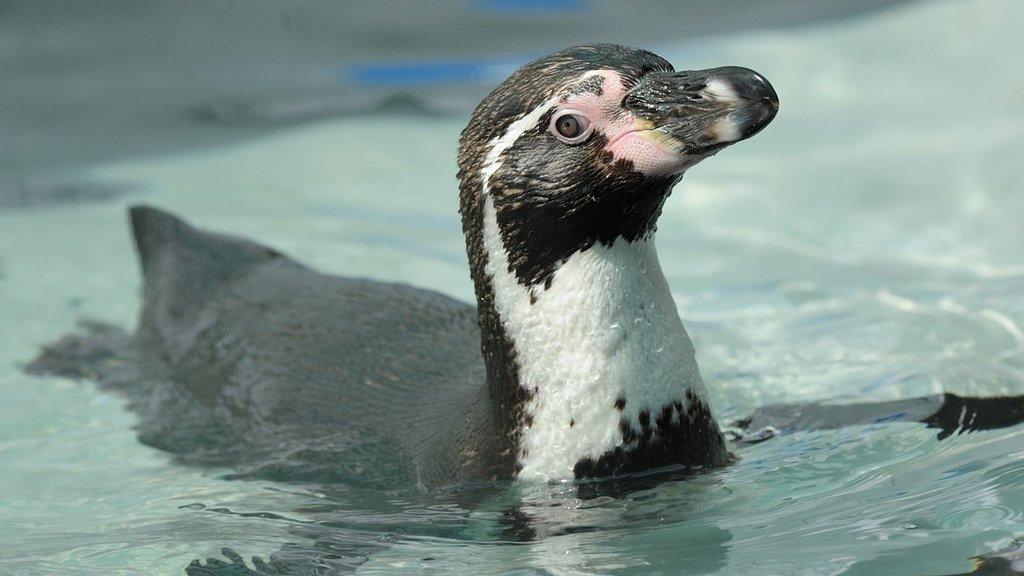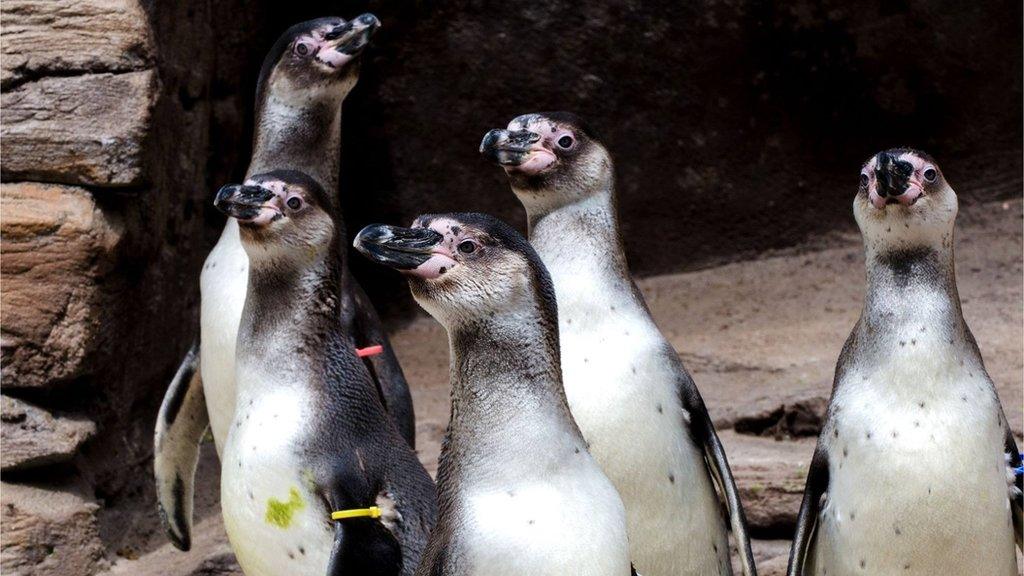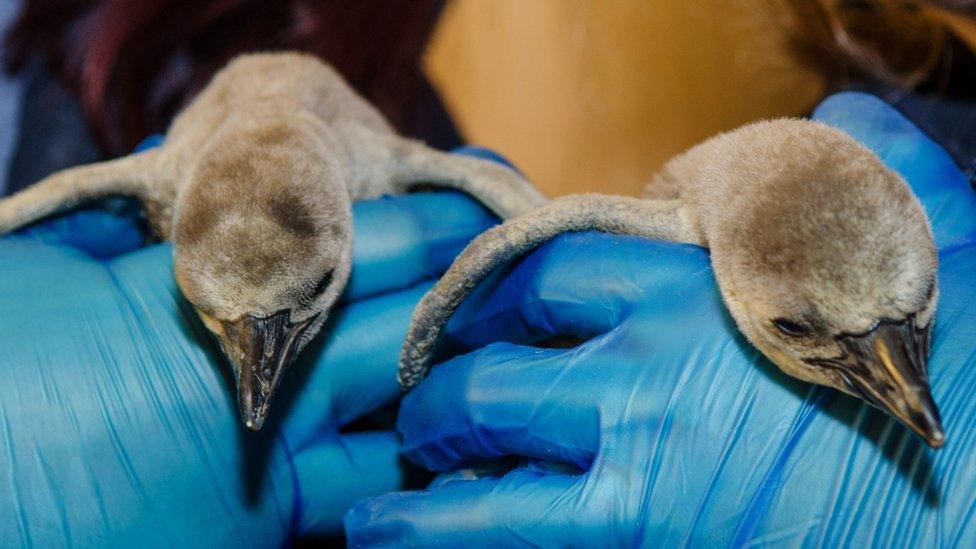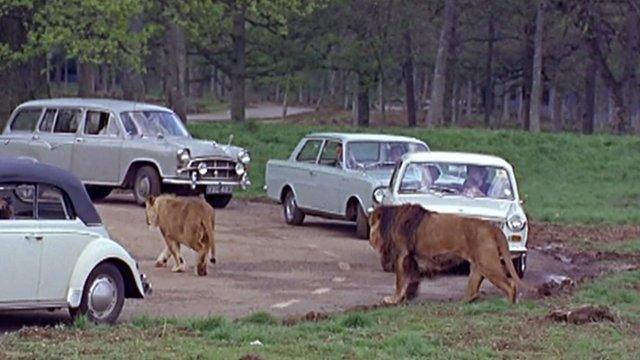Longleat Safari Park penguins die in malaria outbreak
- Published

The death of the penguins has left the keepers "absolutely devastated"
A malaria outbreak has killed 25 penguins at Longleat Safari park.
A spokesman for the park, in Wiltshire, said the Humboldt penguins had contracted the avian strain of the disease from mosquitoes.
Avian malaria cannot be passed on to humans but the park, which is home to a colony of captive-bred Humboldts, has closed Penguin Island to visitors.
The spokesman added that the park was "doing everything we can to try and treat the remaining nine penguins".
The disease was "not uncommon among penguin collections", he added.

Penguin Island, home to the safari park's colony of captive-bred Humboldts, has been closed to visitors
"Regrettably this has resulted in us losing a total of 25 penguins from our resident colony; despite the very best efforts of the team of keepers involved in their care," a spokesman said.
"The penguin team have been working incredibly hard to try and save as many of the colony as they can and they feel the loss of each individual penguin acutely."

What is Avian malaria?
Avian malaria is caused by a different parasite to human malaria, and is endemic in domestic birds
The human form is transmitted by the Anopheles mosquito, which does not thrive in colder areas of Europe
However, the parasite that is carried by the Culex mosquito, which causes the avian strain, is an established UK species
Although it does not usually kill, it can be lethal to species which have not evolved resistance to the disease, such as penguins
It cannot be passed on to humans
Originally from South America, the breed is normally found around coastal areas of Peru and Chile.
Humboldt penguins are now officially listed as "vulnerable" by the International Union for Conservation of Nature, which means they are at immediate or imminent risk of becoming endangered.
Related topics
- Published3 November 2015

- Published30 March 2016

- Published30 March 2016